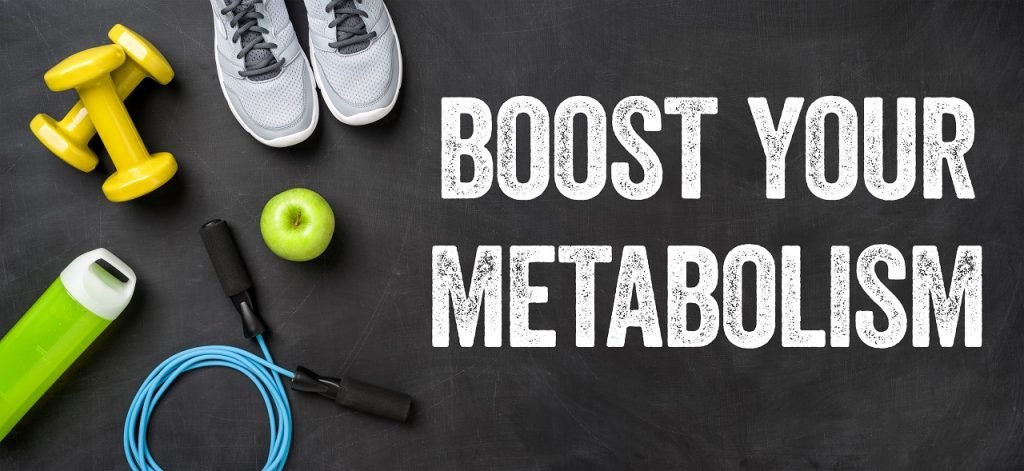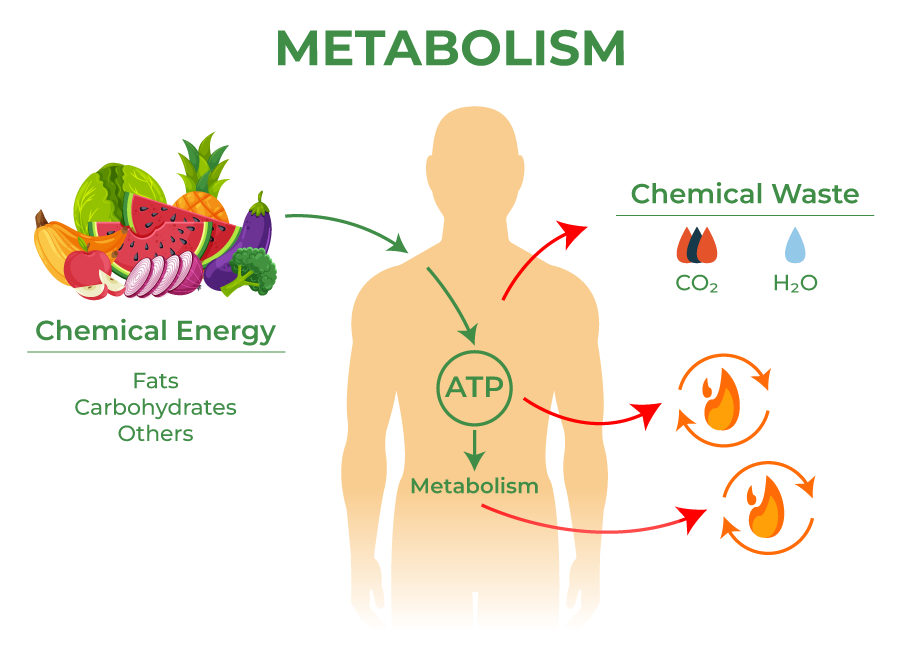
Metabolism: The Ultimate Guide to Understanding and Optimizing It
Metabolism is a buzzword often thrown around in conversations about health, fitness, and weight management. But what exactly is metabolism, how does it work, and why is it so crucial for your overall well-being? This comprehensive guide will break down the science of metabolism, explain its importance, and offer actionable tips to optimize it.
What Is Metabolism?
Metabolism is the series of chemical processes that occur in your body to maintain life. These processes convert the food and drink you consume into energy. This energy fuels every essential function in your body, from breathing and circulating blood to repairing cells and even thinking.
Metabolism can be divided into two primary components:
1. Catabolism (Breaking Down): This process break down large molecules, such as carbohydrates, fats and proteins, into smaller ones . It releases energy that you body uses for activities like movement and maintaining body temperature.
2. Anabolism (Building up): This process uses energy to build and repair tissues, such as muscles and bones. It’s also involved in producing hormones and enzymes needed for growth and recovery.
Why Is Metabolism Important?
Metabolism is essential for sustaining life and maintaining optimal health. Here’s why it’s so crucial:
1. Provides Energy for Vital Functions
Metabolism ensures that your body has enough energy to power basic functions like breathing, pumping blood and regulating body temperature. This baseline energy requirement is known as your Basal Metabolic Rate (BMR).
2. Supports Growth and Repair
Through anabolic processes, metabolism helps build and repair tissues, ensuring your body can recover from injuries, grow stronger and maintain overall health.
3. Aids in Weight Management
Your metabolic rate determines how many calories your body burns at rest and during activities. A faster metabolism can make it easier to maintain or lose weight, while a slower metabolism may contribute to weight gain.
4. Regulates Hormonal Balance
Metabolism interacts with hormones like insulin, thyroid hormones and cortisol to control energy levels, mood and fat storage. A well-functioning metabolism helps maintain hormonal balance and prevent metabolic disorders.
5. Prevents Chronic Diseases
Efficient metabolism helps regulate blood sugar, cholesterol and fat storage reducing the risk of conditions like diabetes, heart disease and obesity.
Factors That Influence Metabolism
Several factors can affect how fast or slow your metabolism is:
Age : Metabolism naturally slows with age, particularly after 30, due to muscle loss and hormonal changes.
Muscle Mass : Muscle tissue burns more calories than fat tissue, even at rest. More muscle equals a higher metabolic rate.
Gender : Men typically have a faster metabolism than women due to higher muscle mass and lower body fat percentage.
Genetics : Your genetic makeup can influence your metabolic rate and how efficiently your body processes food.
Physical Activity : Regular exercise can boost your metabolism by increasing calorie burn and muscle mass.
Diet and Hydration : The quality and quantity of your food and water intake significantly impact metabolic efficiency.

How to Boost Your Metabolism ?
While some factors affecting metabolism are beyond your control (like genetics), there are many lifestyle changes you can adopt to optimize it.
1. Stay Physically Active
a) Strength Training : Building muscle through weight lifting or resistance exercise increase your resting metabolic rate (RMR).
b) Cardio Exercise : Activities like running, cycling or swimming burn calories and improve cardiovascular health.
c) High – Intensity Interval Training (HIIT) : HIIT workouts can boost your metabolism for hours after exercise.
2. Eat a Balanced Diet
a) Prioritize Protein : Protein-rich foods like lean meats, eggs and beans require more energy to digest and help build muscle.
b) Include Healthy Fats : Foods like avocados, nuts and olive oil support hormonal health and fat metabolism.
c) Opt for whole carbohydrates : Whole grains and fiber-rich foods provide sustained energy and prevent blood sugar spikes.
3. Stay Hydrated
Water is essential for metabolic processes. Even mild dehydration can slow your metabolism. Aim to drink at ;east 8-10 glasses of water daily.
4. Get Quality Sleep
Poor sleep disrupts hormones like ghrelin and leptin , which regulate appetite and metabolism. Strive for 7-9 hours of quality sleep each nights,
5. Manage Stress
Chronic stress raises cortisol levels, which can show your metabolism and lead to fat storage. Practice mindfulness, meditation or yoga to reduce stress.
6. Avoids Crash Diets
Extremely low-calorie diets can cause your metabolism to slow as your body conserves energy. Instead, focus on a sustainable, nutrient-dense diet.

Types Of Metabolism
Metabolism can also be categorized based on specific functions:
Energy Metabolism: The overall process of converting food into energy.
Carbohydrate Metabolism: Focuses on breaking down carbs into glucose for energy.
Fat Metabolism: Involves the breakdown of fats into fatty acids for long-term energy storage and usage.
Protein Metabolism: Helps build and repair tissues, with excess protein converted into energy if needed.
Aerobic vs. Anaerobic Metabolism:
Aerobic: Uses oxygen to produce energy, ideal for sustained activities.
Anaerobic: Does not require oxygen and is used for short bursts of intense activity.
Common Myths About Metabolism
Myth 1 : Skinny people have faster metabolisms
Metabolism isn’t solely about body size. Muscle mass, activity levels and genetics play a more significant role.
Myth 2 : Eating small meals frequently Boost Metabolism
while eating regularly can stabilized blood sugar, meal frequency has little effect on your overall metabolic rate.
Myth 3 : Certain Foods “Burn” Fat
Foods like green tea or spicy peppers can slightly increase calorie burn, the effect is minimal and not a substitute for exercise and a healthy diet.
The Bottom Line
Metabolism is the engine that powers your body, influencing everything from energy levels to weight management and disease prevention. By understanding how it works and adopting healthy habits like regular exercise, a balanced diet, and proper hydration, you can optimize your metabolism and improve your overall health.
Ready to take charge of your metabolism? Explore our tips and resources on fitness, nutrition, and wellness to kickstart your journey today!
For more health insights follow @Shikha.agarwal02 on insatgram
or for direct consultation Whatsapp at +91 98311 91518, +91 82400 22632
